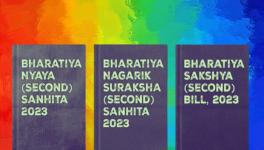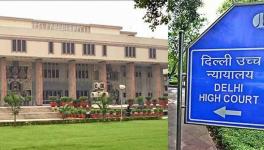Is Bail a Right or a Privilege?

Legal certainty is a legal philosophical concept wherein in order for a society to claim to have the rule of law, those subject to the law must be able to go about their affairs with an element of certainty as to the legal position. This certainty proves to be a bedrock against arbitrary conduct, as the conduct of the State in response to a situation of fact is already pre-determined by the law, and therefore those subject to the law may be able to make certain predictions as to legal outcomes while going about their affairs.
The purposiveness of the law is reflected in this means wherein the law fulfils its purpose when a particular law is applied to a certain set of facts resulting in a specific outcome. This ties into the broader ideas of justice. These principles were outlined by German legal scholar Gustav Radbruch whose contentious Radbruch Formula I will draw from in order to analyse what I think has been a general and fundamental breakdown in the rule of law in relation to India.
Merger of minds of judges in India
Legal certainty is internationally recognised as a fundamental principle on the basis of which the rule of law is built. In a traditional common law system, there are two minds that are at play when faced with a legal proposition: the assessors of fact (the jury) and the assessor of law (the judge), and it is the judge who determines which law applies. This law is then put to the jury, who have to determine if the factual elements that merit the application of this law are met, thereby returning a verdict both in civil and criminal cases.
In India, however, the system of jury trials for civil and criminal matters no longer exists except for certain specialised areas of law such as Parsi divorces. In India, the minds are merged into one mind, that is, the judge, who sits in judgment as both the assessor of fact as well as the assessor of law. This hybrid mind, however, is not someone who deals with cases in an inquisitorial manner but is the key player in a system of adversarial due process.
Such a merger of minds, without a shift from adversarial due process to an inquisitorial one, will often result in outcomes that become chaotic.
Let us deal with a simple example of excluded evidence. While the law does provide for strict rules on evidence, it is the same mind that decides what evidence ought to be excluded after hearing that evidence.
It will not be a stretch to say that it is quite plausible that a judge, while dealing with a case, would find it hard to sequester the excluded evidence mentally while applying their mind to determine if the evidence meets the threshold required for a particular verdict. The unclouded mind is something that the system aims for, but is something that it can seldom deliver. This results in judges having to make factual determinations at every stage in the process, including stages where factual determinations need not be made.
In this piece, I take the example of the law of bail. The law of bail has been in the limelight recently with certain high-profile cases emerging, bringing into sharp relief the question of whether the accused was or is entitled to bail pending trial.
How this hybrid mind distorts bail hearings
The concept of bail emerges as a corollary to the principle of the presumption of innocence, a principle that exists due to the logical inability to prove a negative. Unless there is a presumption to the contrary, an accused cannot be called upon to prove their own innocence. Only the prosecution may establish the guilt, and the question of guilt and innocence is left to determination at trial.
Under this orderly framework, the principles for the grant of bail must be limited to seeing what steps are necessary to ensure that the accused is present during trial and is unable to affect the prosecution’s evidence. In some senses, bail is analogous to the power of a civil court to take steps to preserve the subject matter of the dispute pending trial. But unlike interim reliefs in civil cases, bail is a fundamental right of every accused.
The criminal court is required to take steps to ensure that the accused is present during trial while retaining the right of the accused to be presumed to be innocent. Where the law presumes innocence, the criteria of bail, irrespective of the offence, must be limited to (a) whether the accused is a flight risk?, (b) whether the accused will be able to tamper with the prosecution’s evidence/investigation, and (c) whether the accused is in a position to provide sufficient surety/security to satisfy the criminal court that they will attend to the court at trial.
Instead, however, in India, bail now turns into a pre-trial factual determination where the prosecution often makes out a prima facie case. Judges, while passing such orders, make the caveat that their observations will not affect the determination at trial; however, this begs the question: why do judges need to make this determination in the first place?
This may perhaps be because the judge who is granting bail is often the same trial judge who will hear the evidence. The merger of minds results in a situation where the pre-trial evidence is not just taken cognisance of, but becomes an integral part of determining the outcome of bail. In such a scenario, can an accused truly think of bail as being a right rather than a privilege?
If bail is a right, an accused, innocent or otherwise should be able to expect bail as a matter of course if they are able to satisfy the court that the accused will be present at trial. There is no need to go into the prosecution’s evidence. However, even the Supreme Court, in its recent judgement on the guidelines for bail, has recognised that bail terms change for a category of heinous offences.
This, unfortunately, has resulted in the gravity of the allegation and the materials on record being a key element to the grant of bail. Under such a scenario, you may have a trial judge who makes one determination at the bail stage and a completely different determination at the trial stage. This is the same with the superior courts, who will hear applications for bail and do the same exercise, and then re-appreciate the evidence in an appeal.
The dictum that bail is the rule and jail is the exception doesn’t hold when evidence is considered for the purposes of bail. However, Indian law entrenches this as a part of its jurisprudence despite the existence of a Part III in her constitution that is the envy of the world.
This unfortunately results in the law of bail turning into a highly uncertain branch of law. Rather than consistent bail jurisprudence, the law ends up in a position where the law of bail is determined on a case-to-case basis due to the requirement that there be an appreciation of evidence at the bail stage itself. It leads to unsound outcomes like bail being granted in a habeas corpus case against a judicial order.
It also leads to unreasonable conditions being placed on the accused at times due to the prima facie factual determination made. For example, in some narcotics cases, the person accused of unlawful consumption may be required to undergo drug rehabilitation as a condition of bail, which effectively amounts to an admission as to the offence. The right to remain silent also takes a hit as the ‘cooperation’ of the accused with the investigation is also now a factor to determine bail.
The threat of uncertainty to rule of law
Bail is one glaring example of the lack of certainty available in the Indian legal system today, but I speak of bail because if there is no clarity as to the law of bail, the fundamental rights turn meaningless in their application as far as personal liberty is concerned. Certainty is the prime safeguard against arbitrary action, and it is the role of courts to reduce arbitrariness. If the law itself is applied in an arbitrary manner, it is safe to say that the rule of law has broken down in India.
If the rule of law has broken down in India, the legitimacy of the State to exercise the police power also breaks down, and India moves on the path of effective State failure.
The course of history needs to be arrested post haste to ensure that constitutional principles, which emerge from the rule of law, continue to survive.
(Ajay Kumar is an advocate practicing before the High Court at Bombay. The views expressed are personal.)
Get the latest reports & analysis with people's perspective on Protests, movements & deep analytical videos, discussions of the current affairs in your Telegram app. Subscribe to NewsClick's Telegram channel & get Real-Time updates on stories, as they get published on our website.
























